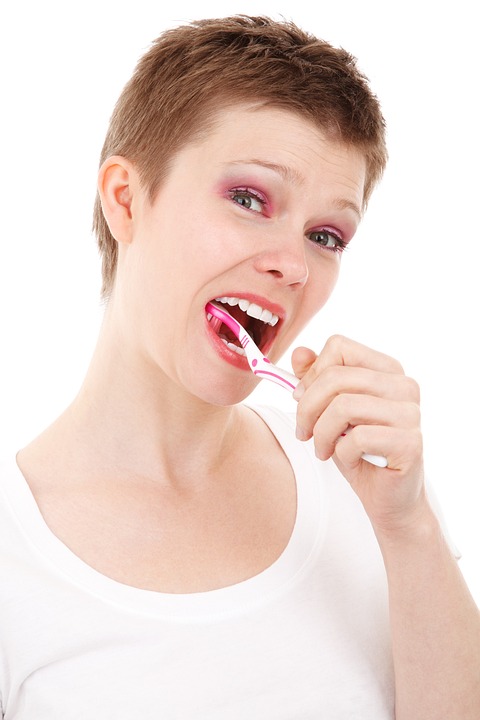The Science Behind Oral Hygiene: How Products Work to Keep Your Mouth Healthy
Oral hygiene plays a crucial role in maintaining a healthy mouth and preventing various dental issues. Understanding the science behind oral hygiene products can help you make informed decisions about the best ways to care for your teeth and gums. In this article, we will delve into the mechanisms of action of these products and explore how they contribute to oral health.
1. Toothpaste: The Foundation of Oral Hygiene
When it comes to oral hygiene, toothpaste is the cornerstone of any effective routine. Toothpaste contains various active ingredients that work together to clean and protect your teeth.
One key ingredient found in toothpaste is fluoride. Fluoride helps to strengthen tooth enamel, making it more resistant to decay caused by acid-producing bacteria. It also aids in remineralization, the process by which minerals are deposited back into the enamel to repair early signs of tooth decay.
Another important component of toothpaste is abrasives. These abrasive particles, such as calcium carbonate or silica, help to remove plaque and surface stains from the teeth. By gently scrubbing the teeth, they contribute to a cleaner and brighter smile.
Toothpaste also contains detergents, such as sodium lauryl sulfate, which create foam and help dislodge food particles and debris from the teeth and gums. Additionally, flavors and sweeteners are added to enhance the taste and encourage regular brushing.
Click here to learn more about the importance of toothpaste in maintaining optimal oral hygiene.
2. Mouthwash: An Extra Boost for Oral Health
Mouthwash, also known as mouth rinse or oral rinse, is an additional tool that can complement your oral hygiene routine. It can reach areas that are difficult to clean with a toothbrush alone, such as the back of the tongue and between the teeth.
The primary role of mouthwash is to freshen breath by masking odors caused by bacteria in the mouth. However, some mouthwashes also offer additional benefits.
Antiseptic mouthwashes contain active ingredients like chlorhexidine or essential oils that help kill harmful bacteria in the mouth. These mouthwashes are particularly useful for individuals with gum disease or those prone to oral infections.
Fluoride mouthwashes, on the other hand, provide an extra dose of fluoride to further strengthen tooth enamel and prevent tooth decay. They are often recommended for individuals at high risk of cavities, such as children or individuals with a history of dental issues.
Please note that mouthwash should not replace regular brushing and flossing, but rather be used as a supplementary step in your oral hygiene routine.
3. Dental Floss: Reaching Where Toothbrushes Can’t
While toothbrushes are effective at cleaning the surfaces of your teeth, they cannot reach the tight spaces between them. This is where dental floss comes in.
Dental floss is a thin, thread-like material that is inserted between the teeth to remove plaque and food particles. It helps prevent the buildup of plaque, which can lead to gum disease and tooth decay.
There are different types of dental floss available, such as waxed and unwaxed floss, flavored floss, and floss picks. The choice ultimately depends on personal preference and ease of use.
When using dental floss, it’s important to be gentle and avoid snapping it against the gums, as this can cause irritation or injury. Take your time and carefully clean between each tooth, ensuring you reach all the way down to the gumline.
Frequently Asked Questions (FAQs)
1. How often should I brush my teeth?
It is recommended to brush your teeth at least twice a day, in the morning and before bed. Brushing after meals or snacks is also beneficial to remove food particles and maintain fresh breath.
2. How long should I brush my teeth for?
Dentists recommend brushing for a minimum of two minutes each time to ensure thorough cleaning. Using a timer or an electric toothbrush with a built-in timer can help you keep track of the duration.
3. Should I use mouthwash before or after brushing?
It is generally recommended to use mouthwash after brushing and flossing. This allows the active ingredients in the mouthwash to have direct contact with your teeth and gums, providing maximum benefits.
4. Can I use mouthwash instead of brushing my teeth?
No, mouthwash is not a substitute for brushing your teeth. Brushing physically removes plaque and debris from the teeth, while mouthwash provides additional benefits and freshens breath. Both steps are essential for maintaining optimal oral health.
5. How often should I replace my toothbrush?
To maintain effective oral hygiene, it is recommended to replace your toothbrush every three to four months or sooner if the bristles become frayed. A worn-out toothbrush is less effective at cleaning your teeth.
6. Is flossing necessary if I brush my teeth regularly?
Yes, flossing is necessary even if you brush your teeth regularly. Dental floss reaches areas that a toothbrush cannot access, such as the spaces between your teeth. It helps remove plaque and prevent gum disease and tooth decay.
By understanding the science behind oral hygiene products and incorporating them into your daily routine, you can maintain a healthy mouth and prevent dental issues. Remember, regular brushing, flossing, and the use of mouthwash are key components of a comprehensive oral care regimen.




